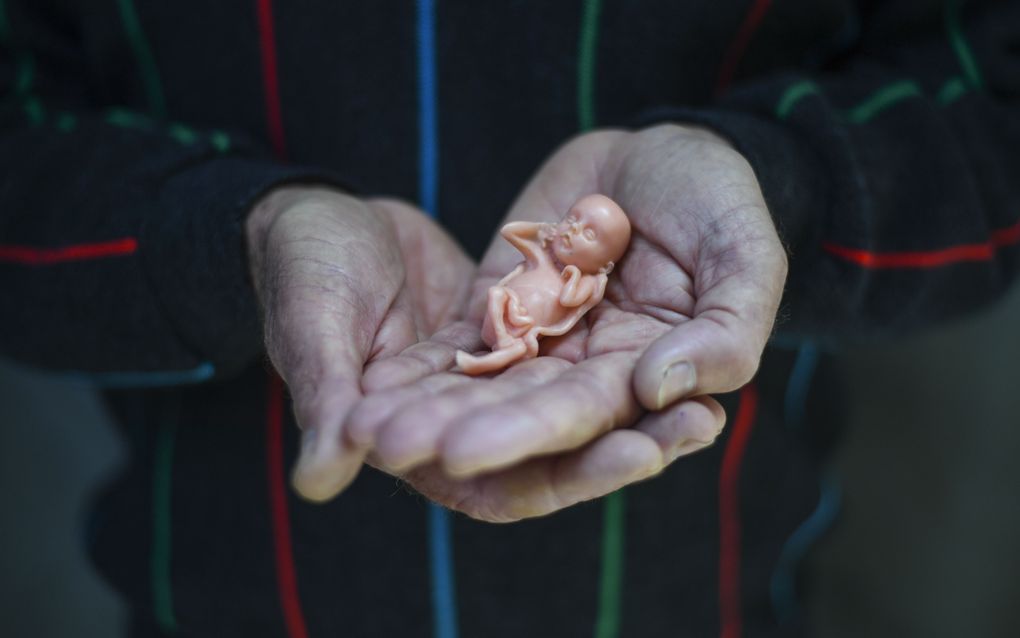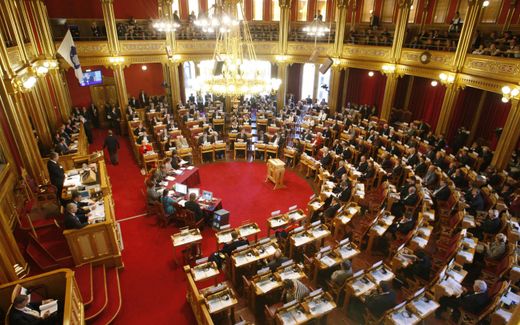Norwegian government appoints committee for possible liberalisation of abortion rules

An anti-abortion activist holds a model of a 12-week-old foetus. Photo EPA, Lukas Coch
Northern Europe
The Norwegian parliament will likely reject a motion to extend the abortion limit from 12 to 18 weeks. Yet, the government recently appointed a commission to look at the possibilities of liberalising the abortion regulation in the country.
The committee was appointed by the Norwegian health minister on Wednesday and gets 18 months to investigate the possibility of extending the period in which a pregnant woman can choose an abortion without consulting a professional. That is reported by Vart Land.
Currently, Norwegian women can choose for abortion up to twelve weeks. After that, they have to consult a special committee that decides whether or not the woman is allowed to have an abortion. This limit is regulated by a 40-year-old law that has not changed much over the years.
The committee's main task is to consider the option of changing the concept of the consultation committees and the possibility of extending the period in which a woman can choose an abortion without having to ask the committee. Moreover, the committee must gain knowledge about the counselling, guidance and follow-ups women receive concerning abortions. Furthermore, the committee can make suggestions for changes in practice, law and regulations based on its findings.
Kari Sønderland, a lawyer and former head of operations at the Ministry of Health and Care Services, will lead the committee, Dagen reports. Who else will be part of the committee remains unclear for now.
Too little support for a majority in the Storting
The Norwegian Storting is divided over the motion to extend the abortion limit. The Labour Party advocates a more extended period in which abortion is allowed, while the Center Party opposes this idea. On Thursday, the Storting will vote about the extension, but it is most likely that the proposal will be rejected.
In February, a poll from Vart Land showed that about 80 MPs would vote in favour if the motion were brought to the table. However, to acquire a majority, 85 MPs have to support it.
Related Articles






